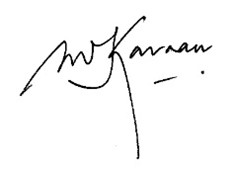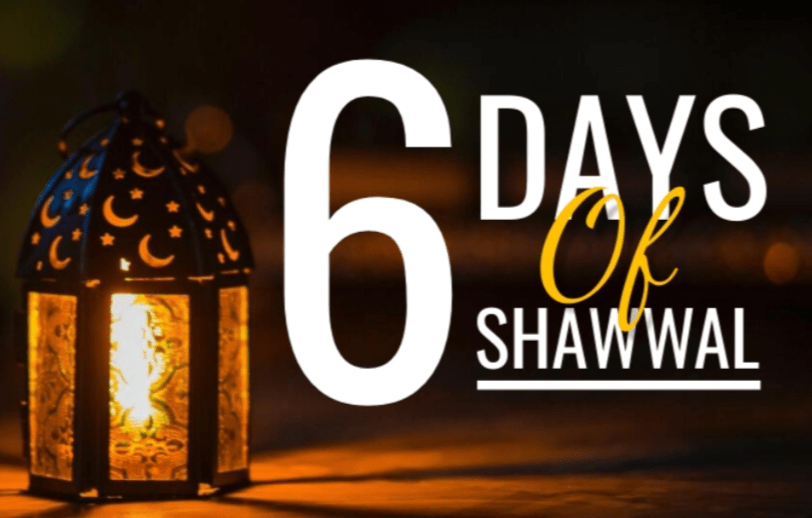- Interest that accrues on money unequivocally falls within the category of ḥarām funds.
- The general rule that applies to any form of ḥarām funds is as follows:
- Where the rightful owner is known, it must be returned to the rightful owner.
- Where the rightful owner is not known, the funds must be disposed of in one of two ways:
- it must either be given towards a charitable cause that benefits the public at large, such as public hospitals, schools or masājid;
- or it should be given in charity to a person who is entitled by his need to receive charity.
- In either case the charity is undertaken on behalf of the rightful owner, with the intention that the reward for it will accrue to him.
قال النووي في شرح المهذب ٩/٤٢٨ (طبعة الإرشاد بتحقيق المطيعي):
قال الغزالي: إذا كان معه مال حرام وأراد التوبة والبراءة منه، فإن كان له مالك معين وجب صرفه إليه أو إلى وكيله. وإن كان لمالك لا يعرفه ويئس من معرفته، فينبغي أن يصرفه في مصالح المسلمين العامة ،كالقناطر ُّ والرُ بط والمساجد ومصالح طريق مكة ونحو ذلك مما يشترك المسلمون فيه .وإلا فيتصدق به على فقير أو فقراء.
- It is commonly held that the one who channels interest funds into such acceptable avenues must do so without any intention or expectation of reward. This negation of reward pertains specifically to the direct reward for charity, to which only the rightful owner is entitled. However, the one who channels such funds towards charity is rewarded for two independent reasons:
- Firstly, for his facilitation of the charity, which brings him within the ambit of the verse
﴿ وتعاونوا على البر والتقوى ﴾ [المائدة ٢]
- Secondly, for the conscious choice he made to abstain from ḥarām
فقد روى البخاري (٦٤٩١) ومسلم (١٣١) اسناديهما عن ابن عباس رضي ﷲ عنهما عن النبي فيما يرويه عن ربه عز وجل قال: »إن ﷲ كتب الحسنات والسيئات، ثم بين ذلك. فمن همّ بحسنة فلم يعملها كتبها ﷲ له عنده حسنة كاملة. فإن هو همّ 7ا فعملها كتبها ﷲ له عنده عشر حسنات، إلى سبع مائة ضعف، إلى أضعاف كثيرة. ومن همّ بسيئة فلم يعملها كتبها ﷲ له عنده
حسنة كاملة. فإن هو همّ 7ا فعملها كتبها ﷲ له سيئة واحدة.«
- Against this theoretical backdrop we now come to the specifics of your question. As we gather from your query, these are as follows:
- A person has interest funds that accrued on a matured Sharīʿah compliant policy.
- This person is willing to make those funds available for the publication of a fiqh work which you translated.
- While this is not specifically mentioned in your query, we will assume that you’re your Institute will be the publisher of the mentioned work.
- The question as to whether or not the Institute falls under the rubric of maṣāliḥ almuslimīn al-ʿāmmah depends upon the issue of ownership. In terms of ownership, two scenarios are possible:
- An institute of this nature may be privately owned. The mark of private ownership lies in the fact that all donations and fees paid to the institute are directly owned by a personal proprietor.
- Alternatively, it may be non-owned, but rather governed or managed by a person or group of persons. In this instance, income that accrues to the institute in the form fees or donations is deemed to be owned by the institute itself. The institute then pays salaries to its employees.
- The first type of institute does not qualify to be included under the rubric of maṣāliḥ ʿāmmah. Such privately owned institutions may, however, be considered for the receipt of ḥarām funds when their income fall short of their essential Having said that, it is going to be debatable whether publication is an instance of essential expenditure.
- In our estimation, the second type does qualify as an example of maṣāliḥ ʿāmmah. The examples of maṣāliḥ ʿāmmah cited by our Fuqahā—bridges, ribāṭs, masājid—can all be seen to be institutions that are not subject to private ownership. Some of them, like the masjid and ribāṭ, may be waqf-based, while others are not. In our considered opinion, it is therefore the broader element or non-private ownership, rather than the narrower element of waqf per sè, which underpins the inclusion of non-owned institutions into maṣāliḥ ʿāmmah.
- Accordingly, if your Institute falls into the second category, it would eligible to receive the funds in question.
- Once the funds have been channelled to an eligible recipient, two consequences assert themselves:
- The funds become the property of the recipient (or the institute, in case of an institutional recipient).
- The change in ownership causes the funds to lose the disreputable characterization as ribā. It may then be put to any lawful and commendable purpose. As seen in the quotation above, it may even be used in a masjid.
- Evidence of the effect that a change of ownership has upon money or other forms of property may be found in the aḥādīth such as the following:
روى البخاري (٥٠٩٧) ومسلم (١٥٠٤ ) اسناديهما عن عائشة قالت: كان في بريرة ثلاث سنن: عتقت فخ يّرت .وقال رسول ﷲ : »الولاء لمن أعتق.« ودخل رسول ﷲ
وبرمة على النار، فقُرّب إليه خبز وأدم من أدم البيت، فقال: »ألم أر البرمة؟« فقيل: لحم تُصُدّق به على بريرة، وأنت لا }كل الصدقة. فقال : »هو عليها صدقة، ولنا هدية.«
- The same sentiment is encountered in the words of the Fuqahā:
قال الغزالي فيما نقله عنه النووي في شرح المهذب/٩ ٤٢٨: وإذا دفعه إلى الفقير لا يكون حراما على الفقير، بل يكون حلالا طيبا.
[قلت – والقائل صاحب هذه الفتوى- : ما انطبق على الفقير ينطبق تماما على أي جهة تستحق صرف هذه الأموال إليها، بجامع الاستحقاق].
- Having thus far concluded that your Institute would be eligible, provided that it is not privately owned, to receive and take ownership of the funds in question, what remains to be said pertains to income that may be generated from the sale of the book.
- The publication of the book would be the result of two elements combining: (a) the translator’s work; and (b) the funding provided by the institute. As such, it must be recognized that both parties have a valid claim to share in profit generated by the sale of the book. None of the parties may lay exclusive claim to the entire profit.
- The calculation of each party’s share should proceed as follows:
- First assign a reasonable monetary value to the translation work. While it is acknowledged that the work was done gratis, it still has a value that can be expressed in monetary terms.
- Add this value to the costs of publication.
- Calculate the percentage each contribution forms of the total.
- Use these respective percentages of the total as the percentage of entitlement to profit.
واﷲ تعالى أعلم
And Allah knows best.

MT Karaan











